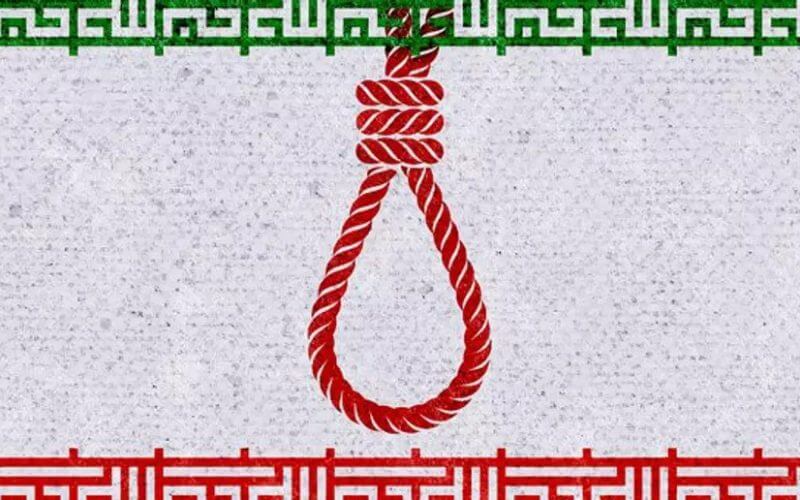Authorities from the Islamic Republic executed five individuals Monday over alleged “armed drug smuggling" in the southern part of the country, according to the regime's judiciary's website Mizan Online.
According to Mojtaba Ghahramani, Chief Justice of the southern province of Hormozgan, the convicts were "all criminal and armed drug smugglers" who were sentenced to death by hanging in a verdict upheld by the Islamic judicial system.
"The sentences of the aforementioned were carried out this morning in Bandar Abbas and Minab prisons" in Hormozgan, Ghahramani said, according to Mizan Online.
The Islamic judicial system executed three convicted for allegedly being drug cartel members Wednesday, following warnings from officials at the United Nations and human rights groups over the "frighteningly" high number of rapid executions in the country.
The Chief Justice's words came as the regime in Tehran executed two other individuals on Monday for making fun of the Koran and the Prophet Mohammad, which resulted in condemnations by American officials and human rights groups.
The Islamic Republic authorities hanged several men Wednesday on drugs and rape charges, according to the Norway-based human rights group Iran Human Rights (IHR).
Among the seven detained individuals, three were executed on drug-related charges in Qezelhesar prison in Karaj, and the other four were hanged on rape charges in Rajai Shahr prison.
Human rights groups and NGO officials note that there has been no official confirmation of the four executions on rape charges.
Mizan Online confirmed the executions on the drug charges, saying that the convicts were "members of the Panjak gang, the largest cocaine distribution cartel, which was one of the main drug cartels in the country."
The Islamic Judiciary website said that six gang members were arrested by authorities in 2014, adding that "at the time of arrest, one kilogram of cocaine, opium, and methamphetamine were recovered from the members of this gang."
While regime officials claim that the individuals arrested have engaged in drug-smuggling activities, experts say such statements from the regime are not to be trusted.
"The regime often uses the charge of 'drug smuggling' to cover up the execution of political prisoners and anyone who challenges the regime," said Alireza Nader, engagement director at the National Union for Democracy in Iran (NUFDI)."
Nader went on to express concern over the reports of the latest charges issued by the Islamic judiciary stating that he was "skeptical of any information coming from the regime & suspect that the authorities are increasing the execution rate in order to terrorize the population."
Last week, UN Human Rights Chief Volker Turk called out the regime's recent uptick in executions, calling it an "abominable" track record and noting that more than 10 people are being put to death each week.
While human rights groups say that around 210 people have been already executed by the Islamic government this year for drug-related offenses, a UN statement said that the number of deaths is much higher. The Islamic Republic does not disclose the official number of those it has executed, fearing international outcry.
"On average so far this year, over 10 people are put to death each week in Iran, making it one of the world's highest executors," Turk said, noting that the execution rates this year puts Tehran "worryingly on the same track as last year when around 580 people were reportedly executed."
In a report conducted last April by IHR and the Paris-based Together Against the Death Penalty, the Islamic Republic hanged around 75% more individuals in 2022 than the previous year.
Officials from the human rights organizations warned that the regime in Tehran is a "killing machine" that continues to push ahead with executions this year "in order to spread fear among people."
Since the creation of the Islamic Republic in Iran in 1979, the ayatollahs have committed human rights violations, executing young and old Iranians on the streets and inside government jails, suppressing young women, and supporting Islamic-backed terrorist groups like Hamas, Palestinian Islamic Jihad, and Hezbollah.
Following the death of 22-year-old Masha Amini in late 2022, the regime has increased its executions via hangings, accusing the United States, Israel, and Europe of inciting the protests and the calls for regime change.
Inside the prisons, officials have forced confessions out of detainees to admit that they were agents of foreign services who want to see the ayatollahs overthrown.
American and European citizens have also faced death sentences. Two weeks ago, the regime executed a Swedish-Iranian dissident convicted of leading an Arab separatist group accused of attacking Iranian officials.
Last week, The Foreign Desk's Editor-in-Chief, Lisa Daftari, hosted an Instagram live with Gazelle Sharmahd, the daughter of Jamshid Sharmahd, an Iranian German national who was last living in the US and was kidnapped by regime officials in Dubai and currently on death row.
Despite calls from human rights groups and Iranian activists, the US and the European Union have not enacted severe consequences against the regime, opting instead for diplomacy and maintaining relations with Tehran in hopes of reviving the 2015 nuclear agreement revoked under the Trump administration.
Related Story: Daughter of Imprisoned German-American National Says Dad “Can Be Next,” Calls on U.S. and E.U. to Do More









